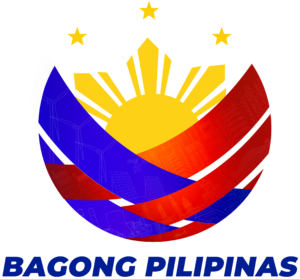JOSE RIZAL AND THE REVOLUTION
Revisiting Renato Constantino’s “Veneration without Understanding”
By Chris Antonette Piedad-Pugay
When we open the pages of history books in the Philippines, it is not surprising to see texts about the martyrdom of our most celebrated hero– Dr. Jose Rizal. In fact, it seems that his name already occupied a permanent and prominent place in every publication that has something to say about the Philippines.
Truthfully, there is nothing wrong about immortalizing Rizal and his heroism in books and literatures read by several generations of Filipinos and non-Filipinos. Probably, most writers deemed that doing such is a fitting way of paying respect and gratitude to his contributions and sacrifices for the benefit of the Filipino people and of our nation. It’s just unfortunate that in trying to present him as an icon of heroism, he was placed in a pedestal that became too tough for Juan dela Cruz to reach.
The national revolution that we had in our country from 1896 to 1901 is one period when the Filipino people were most united, most involved and most spirited to fight for a common cause—freedom. While all aspects of Jose Rizal’s short but meaningful life were already explored and exhausted by history writers and biographers, his direct involvement in the Philippine Revolution that broke out in 1896 remains to be a sensitive and unfamiliar topic.
Historians cannot deny that Rizal played a major part in the country’s struggle for reforms and independence. His writings, particularly the Noli me Tangere and El Filibusterismo were viewed as the guiding force for other patriots to rally for the country’s cause. While most of us believed that Rizal dedicated his life and labor for the cause of the revolution and venerated him to a certain extent, a brave historian rose up and went against the tide by making known to the public his stand that Rizal was NOT an actual leader of the Philippine Revolution. While most of his biographers avoided this topic, it is important to note that this greatest contradiction in Rizal made him more significant than ever.
In his Rizal Day lecture in 1969 entitled “Veneration without Understanding,” Prof. Renato Constantino tried to disclose the real Rizal and the truth of his heroism stripping off the superficial knick-knacks adorned on him by hagiographers and hero-worshippers.
The very striking fact that Constantino forwarded was the notion that Rizal was not a leader of the Philippine Revolution, but a leading opponent of it. Accordingly, in the manifesto of 15 December 1896 written by Rizal himself which he addressed to the Filipino people, he declared that when the plan of revolution came into his knowledge, he opposed its absolute impossibility and state his utmost willingness to offer anything he could to stifle the rebellion. Rizal thought of it as absurd, and abhorred its alleged criminal methods.
Rizal in his manifesto put into premise the necessity of education in the achievement of liberties. Most importantly he believed that reforms to be fruitful must come from above and that those that come from below are shaky, irregular, and uncertain.
Rizal’s weakness for this matter was his failure to fully understand his people. He was unsuccessful in empathizing with the true sentiments of the people from below in launching the armed rebellion. He repudiated the revolution because he thought that reforms to be successful should come from above. It could be understandable that the hero thought of such because it was the belief of the prevailing class to which Rizal belonged. It is also possible that Rizal disproved the revolution due to his belief that violence should not prevail. In this case, Rizal unintentionally underestimated the capacity of those from below to compel changes and reforms.
This hesitation of Rizal against the revolution was supported by Dr. Pio Valenzuela’s 1896 account of the revolution after he was sent by Andres Bonifacio to Dapitan to seek Rizal’s opinion and approval in launching an armed rebellion against the Spanish administration. In September 1896, Valenzuela before a military court testified that Rizal was resolutely opposed to the idea of a premature armed rebellion and used bad language in reference to it, the same statement was extracted from him in October 1896, only that he overturned that it was Bonifacio, not Rizal, who made use of foul words.
However, Valenzuela after two decades reversed his story by saying that Rizal was not actually against the revolution but advised the Katipuneros to wait for the right timing, secure the needed weapons and get the support of the rich and scholarly class. Valenzuela recounted that his 1896 statements were embellished due to duress and torture and it was made to appear that in his desire “not to implicate” or “save” Rizal, testified that the latter was opposed to the rebellion. This turn of events put historians into a great confusion, making Rizal’s stand over the Philippine Revolution, controversial and debatable, making him both hero and anti-hero.
Constantino, in reality did not disrobe Rizal the merit he deserves, what he did was a critical evaluation of Rizal as a product of his time. He pointed out that even without Rizal, the nationalistic movement would still advance with another figure to take his place because it was not Rizal who shaped the turn of events but otherwise. Historical forces untied by social developments impelled and motivated Rizal to rose up and articulate the people’s sentiments through his writings. In fact, the revolution ensued even Rizal disagreed with it. Finally, Constantino argued that to better understand the hero, we should also take note of his weaknesses and learn from them.

